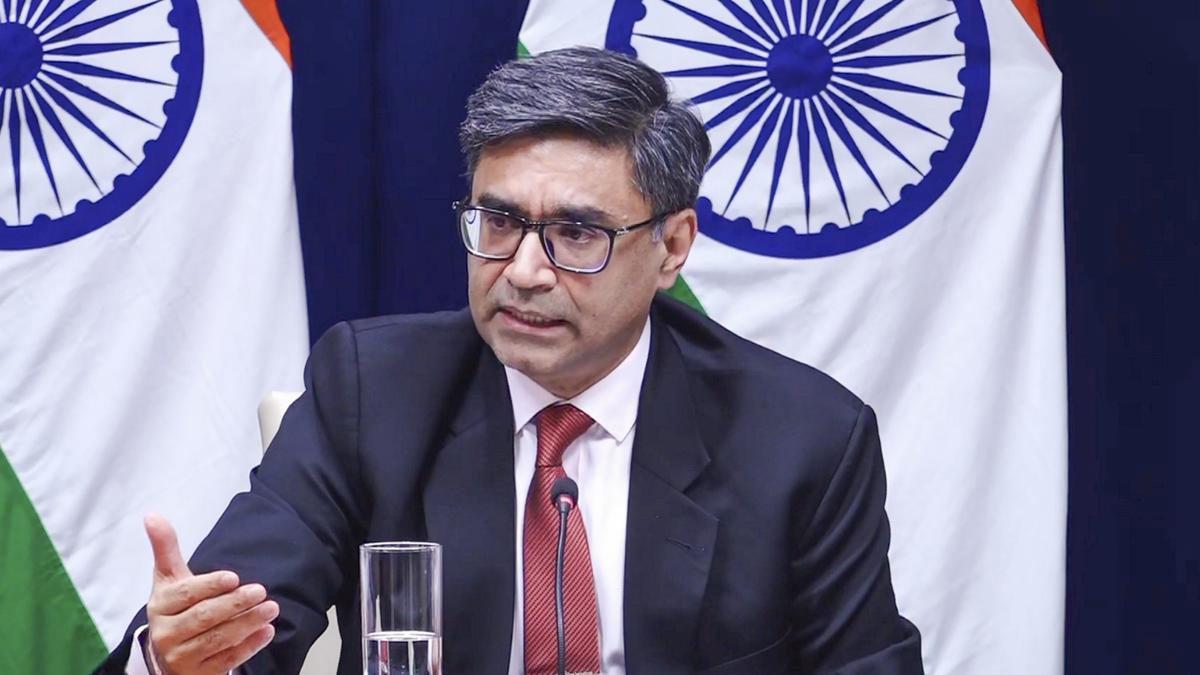Foreign Secretaries of India and Bangladesh met here Monday for the high-level talks between the two nations amid strained bilateral ties following the ouster of prime minister Sheikh Hasina in August.
Foreign Secretary Vikram Misri arrived in Dhaka earlier in the day on an Indian Air Force jet for a day-long visit.
Soon after his arrival here, Misri met his Bangladeshi counterpart Mohammad Jashim Uddin and held one-on-one talks before the formal meeting with delegates from both sides.
It is the first high-level visit by an Indian official since August 5 when Hasina was ousted.
"The scheduled meeting between our foreign secretary Jashim Uddin and his counterpart Vikram Misri is underway at the state guest house Padma, a foreign ministry official here said. They first held brief one-on-one talks, after which the formal meeting began with delegates from both sides," he added.
The official added that the Bangladeshi side would hold a media briefing later Monday about the talks, which were expected to feature all issues of bilateral ties.
Close ties between India and Bangladesh came under severe strain after Hasina was forced to leave the country in the face of a massive anti-government protest in August. Nobel Peace laureate Mohammad Yunus came to power days after Hasina fled to India.
Relations have taken a turn for the worse in recent weeks over attacks on Hindus and the arrest of Hindu monk Chinmoy Krishna Das.
There has been a spate of incidents of violence against Hindus and other minorities, and attacks on temples in Bangladesh in the last few weeks that have triggered strong concerns in New Delhi.
Analysts speculate that recent incidents, including the arrest of the Hindu monk in Bangladesh, alleged harassment of the minority community and attacks on Hindu temples in Bangladesh, and attack on the Bangladesh mission in Agartala are likely to figure in the FS-level talks.
Interim government head Yunus earlier said India might not have liked the "revolution" ousting a "fascist regime. Members of his interim Cabinet said Indian media was largely exaggering the harassment of minorities.
Dhaka said the sporadic violence was a manifestation of an outburst of anger against the leaders and activists of the ousted Hasina regime and the Hindus who were harassed were related to her Awami League party and violence had nothing to do with their religious faith.
Foreign affairs adviser Mohammad Touhid Hossain met briefly in New York on the sidelines of a UN general assembly meeting in September with his Indian counterpart S Jaishankar.
Prime Minister Narendra Modi and Yunus led their respective delegations at the UN summit of heads of state and government in September but had no meeting.
Misri is to call on Hossain and make a courtesy call on Yunus.
Hossain yesterday expressed optimism that Bangladesh and India would be able to overcome the kind of stalemate that the two neighbours witnessed over the last couple of months.
"We expect that we will be able to break this stalemate. Mutual communication and meeting each other is very important to break any such stalemate," he said.
However, he also said it is crucial to note that the relations between Bangladesh and India changed from 5 August onward, and both sides need to try and take forward the relations, accepting this new reality.
Read also| Former Head of Soros' Open Society Foundations Meets Muhammad Yunus in Dhaka
Read also| US Announces Nearly $1 Billion in Long-Term Weapons Aid to Ukraine


















